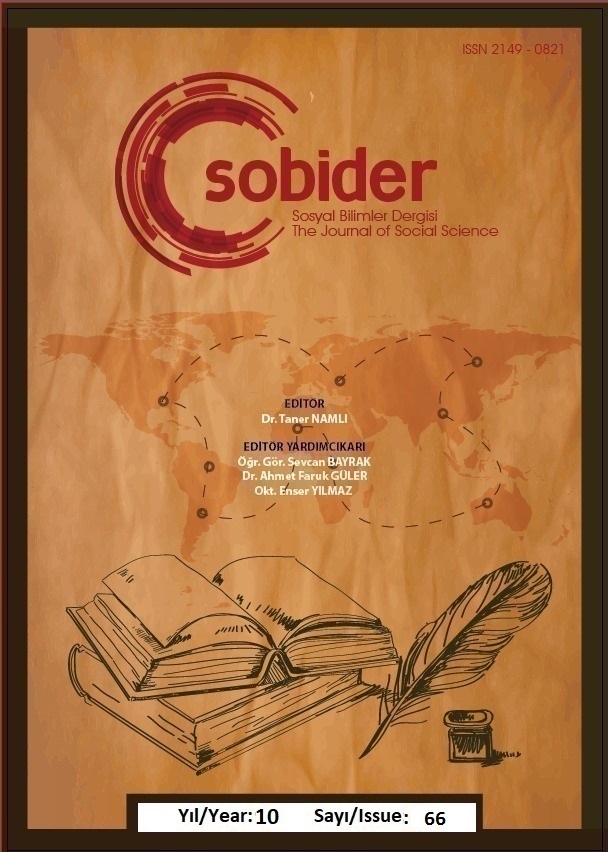Author :
Abstract
Bu araştırma, Kodály Yaklaşımı’na göre uygulanan armoni dersinin başarı, tutum ve performans üzerindeki etkisini ortaya koymak amacıyla yapılmıştır. Öntest-sontest kontrol gruplu deneysel desenin kullanıldığı araştırmanın çalışma grubunu lisans 2. sınıfta armoni dersi alan öğrenciler oluşturmaktadır. Araştırmanın verileri başarı testi, tutum ölçeği ve gözlem formu ile toplanmıştır. Verilerin çözümlenmesinde Wilcoxon testi ve Mann Whitney-U testi kullanılmıştır. Araştırma sonucunda; Kodály Yaklaşımı’na göre armoni dersinin işlendiği deney grubu öğrencileri ile geleneksel yönteme göre armoni dersinin işlendiği kontrol grubu öğrencileri arasında başarı ve performans boyutlarında deney grubu lehine anlamlı fark bulunmuş olup, tutum boyutunda anlamlı bir farklılık bulunamamıştır.
Keywords
Abstract
This study was conducted in order to reveal the influence of harmony classes applied to Kodály Approach in order to reveal its influence over success, attitude and performance. The research group consisted of secondary undergraduate students who take harmony classes, and pretest-posttest control group model of the experimental method was used for the purposes of the study. The data of the study was formed with success test, attitude scale and observation form. Wilcoxon test and Mann Whitney-U test were used for data analysis. As a result of the research; in terms of success and performance dimensions a significant difference was found between in favor of experiment group where harmony classes were applied according to Kodály Approach and control group where harmony classes were lectured according to conventional method, but no significant difference was found in the attitude dimension.





